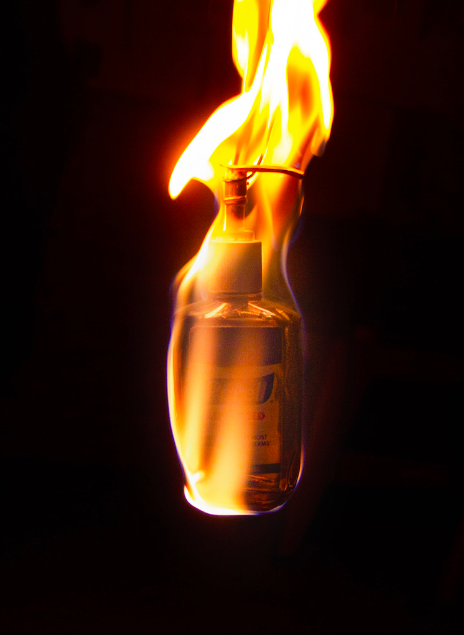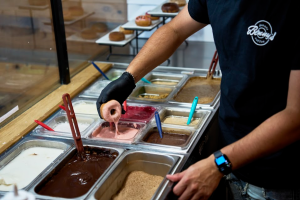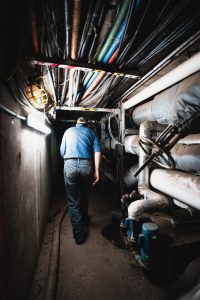A Day in the Life of an Essential Employee
April 23, 2020
Picture this: You’re a cashier at some grocery store right now. Instead of waking up five minutes before your Zoom lecture, you’re still putting in forty hours a week during a global health crisis and interacting with potentially dozens of people a day. Some of them aren’t wearing masks, some of them are coughing into their elbow every four seconds, and some of them don’t seem the least bit concerned for the people around them. If you’re an essential employee, that’s been your life for the last month.
The state of Oregon recognizes “essential” employees as workers in the following fields: healthcare, first responders, food/agriculture, energy, water/sanitation, transportation, public workers, manufacturing, communications, finance, hazardous material management, public defense, chemical management, construction, or childcare. That leaves a decent chunk of people actually still working, so how are essential workers faring during an increasingly uncertain time?
“There’s only two of us, sometimes three, working at once” said Danny, a barista who requested his employer remain anonymous. “But since only the drive-through is open we’ve been able to handle it.”
“I hear things like ‘don’t go to the grocery store unless it’s urgent,’ but I’m here every day,” said Jeremy Dawson, a Safeway employee. “People thank me when I check them out, but most of them don’t respect social distancing rules. They’ll get close when they’re handing me their card, they’ll ignore the six foot markers.”
Lockdown has been in effect for a month, forcing businesses to continue adapting to distancing guidelines and mandated closures.
“We close earlier now, so I have to come in earlier to keep the same hours,” said Danny. “The customers seem to appreciate that we’re open though. One guy tipped us a bottle of hand sanitizer.”
“It’s scary being around so many people all day,” said Dawson. “At least I feel like I’m making a difference, if we closed then it would just crowd other stores even more.”
Uncertainty reigns supreme. Since there’s no vaccine and testing is almost hilariously unavailable, all most of us can do is wait and do our part by flattening the curve. Unfortunately, that could be another week, month, or more.
“On one hand, I feel like coffee is far from essential and people shouldn’t be coming in,” said Danny. “On the other, I have bills to pay, I can’t afford to not be working. I’m looking forward to having a regular schedule again.”
“We’re called ‘essential’ employees, but it doesn’t feel like it,” said Dawson. “At the end of the day, folks need to eat. If we don’t come to work, people don’t eat. That seems worth more than an extra $2 an hour as hazard pay.”






